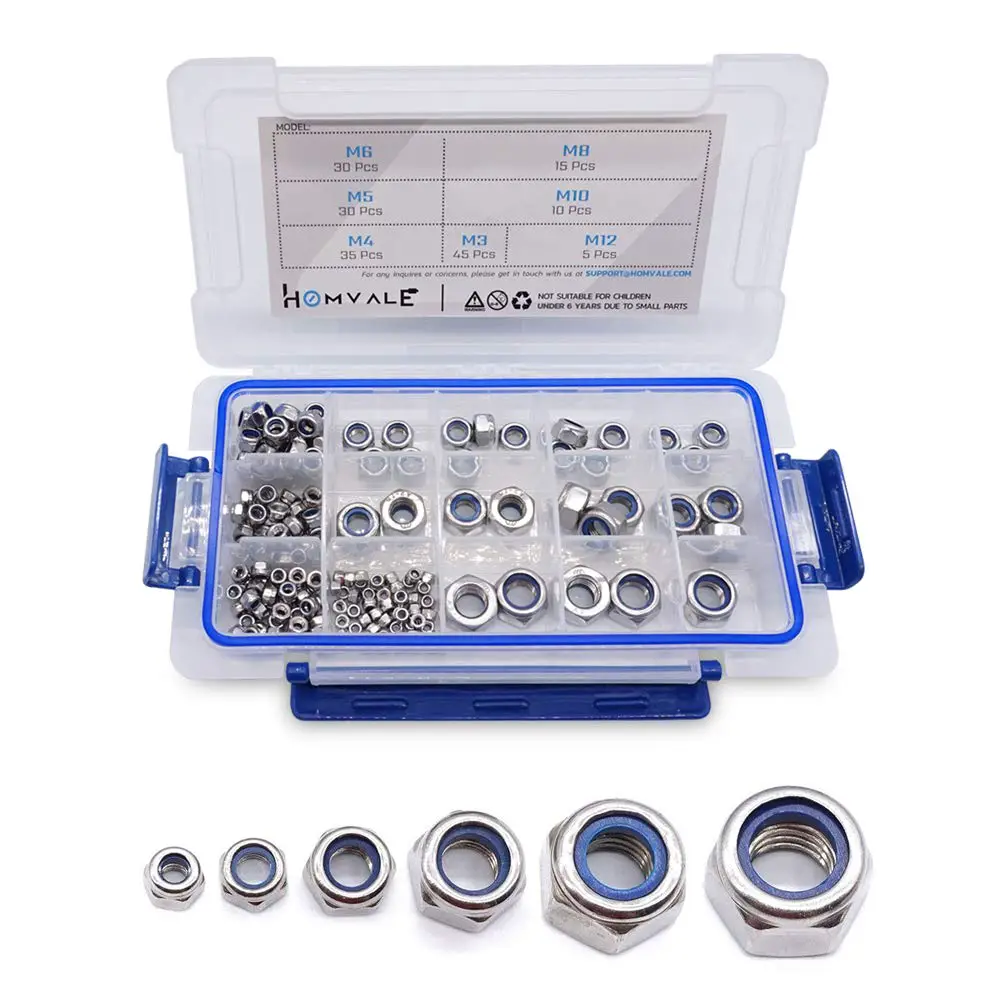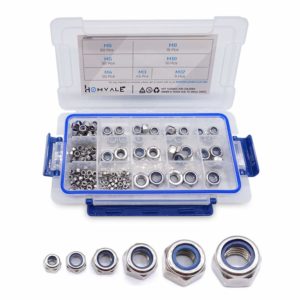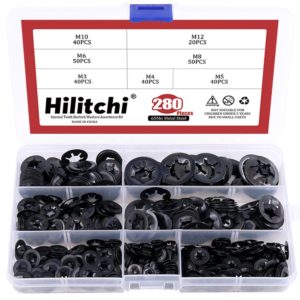Are you wondering whether a lock washer can work with a lock nut? In this Lock washer vs lock nut review, we explain the differences of the two washers and see if they are compatible.
I restore automobiles for a living in my home garage, I have always had issues with the washers I used. They did a good job holding the assembly at first but with time, problems arose. My clients kept coming back with complaints about wobbly or leaking components. I though using standard washers was fine to provide the needed lock pressure between fastener and surface. As I did my research, I realized I was using the wrong washers. I needed washers that could dig into the bold head and the surface for added friction. This is how I landed on lock washers and lock nuts.
Differences between Lock Washer and Lock Nut
| Lock Washer | Lock Nut | |
| Material | Stainless Steel | Stainless Steel |
| Application | General | Heavy Duty |
| Color | Black | Silver and Blue |
| Check price | Check price |
Lock Washer Vs Lock Nut- A Detailed Review
Material
Both lock washers and lock nuts boast of a stainless steel construction. The tough material is necessary especially for lock nuts which function in high heat application. Lock washers may include some color to add an aesthetic appeal. Lock nuts can be multi-colored as well especially if they include nylon collars on the inside. You can also find lock washers made from zinc coated steel, galvanized steel, and silicon bronze.
Application
Lock nuts are way superior to lock washers in application. Lock washers are applicable in home, commercial, and industrial applications. You can use them in cars, electrical systems, or in machine assembly. Lock washers come in various sizes to suit different applications as well.
Lock nuts are wider and thicker compared to lock washers. While lock washers form part of a bolt and surface assembly, lock nuts come with internal washers installed. You do not need a lock washer when you have a lock nut.
Lock nuts are thick which makes them more suitable for complex applications. They come in handy especially in high heat or high vibration situation. The thickness of the nut protects it from corrosion which provides better grip. The included nylon collar adds to the grip and also protects against leaks.
Durability
The durability of fastener accessories depends on their built quality. Lock washers made from steel, aluminum, bronze, or metal alloy are durable. They also perform an excellent job in providing reliable grip and friction between bolt and surface.
Lock nuts have a thick and strong construction. They last longer compared to lock washers. They work in complex projects where extreme heat or vibration is inevitable. These lock nuts will hold their ground no matter how much pressure you exert on them.
Lock washer
Lock washers make it easy to work with bolts or nuts in any project you have. This box comes with 280 pieces of washers sorted into various sizes. In this box you will find lock washers in sizes of M3, M4, M5, and M6 pieces. Also find these washers in sizes of M8, M10, and M12.
Hilitchi lock washers boast of a stainless steel construction. They strengthen the bond between fastener and surface with minimal leakages or loosening. These lock washers have internal teeth which grab onto the surface when tightened. This prevents the washer from loosening hence maintaining integrity of the bonding surface.
All washers in the box have a black oxide color. They are ideal for use in the automotive and motorcycle industry. Their sleek black appeal adds an aesthetic touch to any assembly project. Add these washers to your tool box. They will make your home remodeling or machine renovation projects worth it.
Pros
- Durable stainless steel material
- Sleek appealing color
- Large size variety
Cons
- Not applicable in heat intensive projects
Lock Nut
This lock nut pack comes with an assortment of nylon lock nuts in several sizes. They are the best replacement if you do not want to work with flat washers or lock washers. Lock nut have greater built quality and assembly efficiency.
This park comes with 170 pieces of assorted locknuts. A complete lock nut pack has 7 different sizes of lock nuts. Available lock nuts are in M3, M4, M5, M6, and M8 sizes. The larger lock nuts comprise of M10 and M12 sizes. All lock nuts feature Grade 304 stainless steel which is the best in the industry.
Enjoy the convenience and handiness of this lock nut assorted pack. The lock nuts are ideal if you are running a complex project with a high possibility of vibration or intense heat. These lock nuts feature an internal nylon collar which cancels the need to have lock washers. The nylon collar strengthens the bond between nut and bolt maintaining the integrity of the bonded surface.
Pros
- Very strong material
- Replaces lock washers
- Ideal for complex projects
Cons
- May not work in some applications
Conclusion
Given the option to choose between lock washer vs lock nut, I would go with lock nuts. They easily replace lock washers and work best in heavy duty application. Lock nuts have a stronger built quality and will last longer. They also affirm the integrity of the bond between fastener and surface.
FAQs
Are lock washers compatible with lock nuts?
Lock nuts are standalone fasteners in most applications. Adding a lock washer improves joint tenacity. The lock washer goes on the bolt side.
What type of washer works with locking nuts?
A split lock washer works best with a locking nut. It acts like a spring that holds the threaded locking nut in place. This improves joint integrity and prevents bolt loosening.
Are lock nuts reusable?
Lock nuts have a superior build quality which makes them durable. The locking nut will be reusable as long as the nylon insert is not damaged.
How can I tighten a lock nut?
Ensure you place the right-sized washer on the threaded point of the bolt. Thread the lock nut until you feel a resistance from the nylon inset. Tighten the joint using a wrench for a firm grip.



